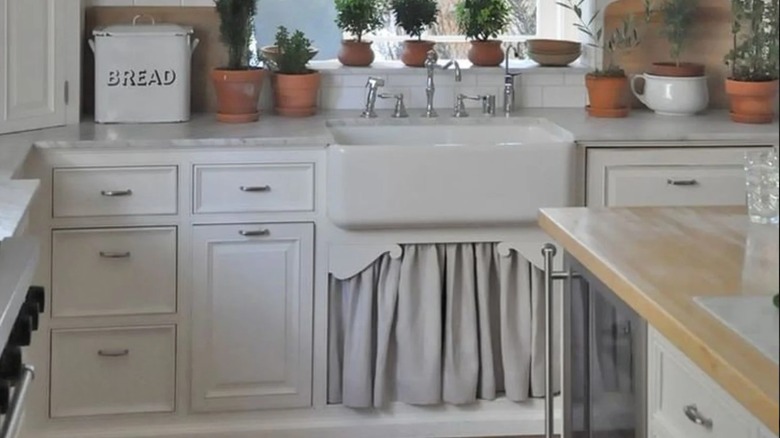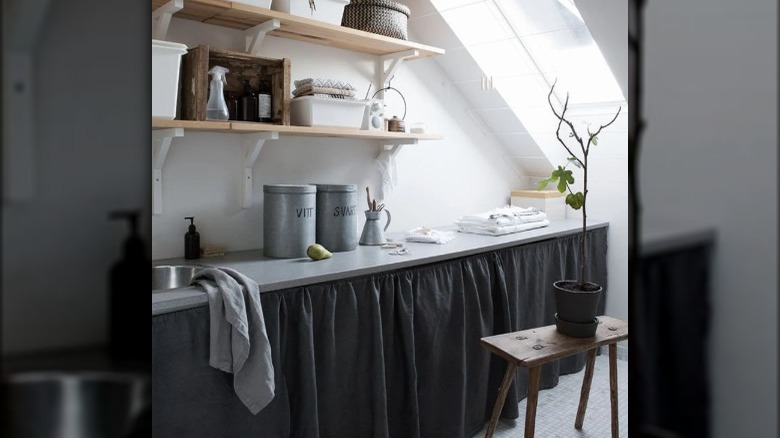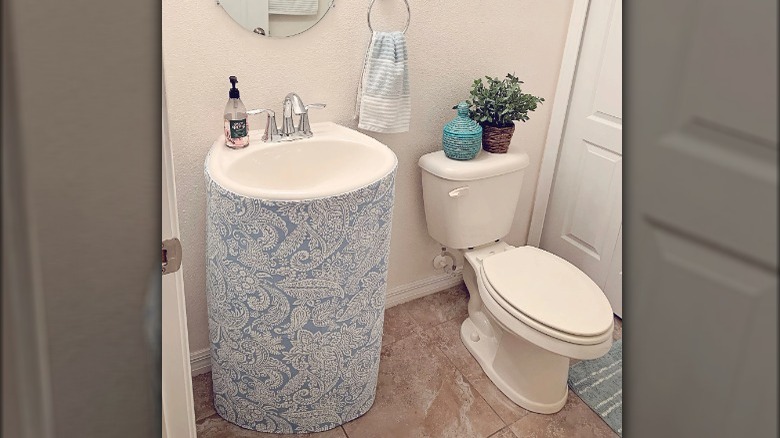The Sink Skirt Is Making A Comeback - Here's How To Make It Work In Your Space
Interior design trends tend to come and go, but what are your thoughts on the latest return of the sink skirt? In the past, this decorative tool has been utilized to elevate the style of a sink, create a simple storage compartment, and hide unappealing pipes. And, not only is it a popular choice for the bathroom, but also the kitchen, mudroom, and powder room. Additionally, as homeowners continue to crave simplicity, a sink skirt has become a useful way introduce various interior design characteristics into one space.
"Sink skirts are a great way of softening a room and adding character, especially when used in more functional spaces such as utility rooms or pantries," Will Eaves, International Design Coordinator at British Standard by Plain English told Livingetc. "Playing around with color and pattern allows you to instantly inject personality into the space — creating a playful yet practical room."
We've gathered all the information you need to know to successfully use a sink skirt and create an impactful and harmonious design. You may be thinking this trend is best suited for a traditional home, but you'll be surprised by how versatile it actually is.
Suited for different styles
The main benefit of sink skirts is that they come in a variety of colors and patterns. So, no matter what your design aesthetic is, you're sure to find something that is complementary. However, it's important to have an understanding of the type of ambiance each pattern evokes. For instance, if you favor a traditional home design, a pattern with skinnier stripes will look best with your surrounding decor. Alternatively, fabric with a bold and thick striped pattern will work best in a contemporary setting.
Those who prefer a minimalist design can also enjoy this trend. "We would recommend pairing with fabrics that are simple and pared back — linen is a great option for this as it softens the space and adds a textured contrast to the wooden cupboards," Will Eaves explains. It's also important to pay attention to the style of the heading. Something that is pinch pleated will perpetuate a classic look, whereas a grommet or rod pocket header will modernize its overall appearance.
DIY tips and fabric suggestions
Sink skirts can either be purchased or turned into a fun DIY project. If you prefer the latter, we've got a few tips to help you out. Most sink skirt tutorial experts suggest using a sewing machine. So, unless you're pretty good at using a needle and thread, this may be a difficult project for you if you don't have the proper equipment. To start, you'll have to accurately measure the width and height of the sink you're working with, then add about 5 inches to those measurements for the seams.
Also, your fabric should be resistant to mold, even if your bathroom or kitchen has decent ventilation. However, if you're still worried about potential fungal issues, we suggest using waterproof fabrics, such as polyester and nylon. These materials are often used to make umbrellas and raincoats, so they should be able to hold up in a humid space.


